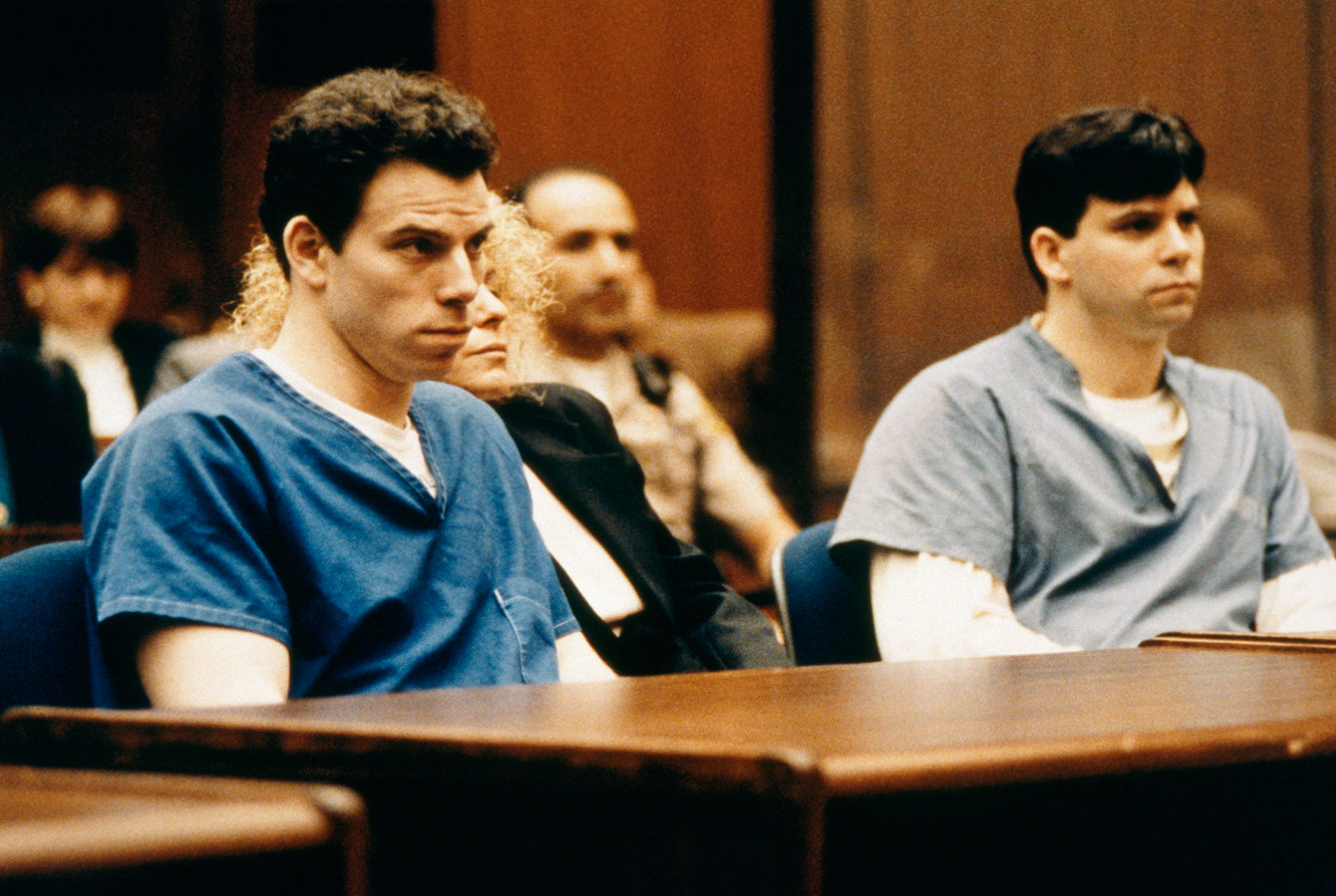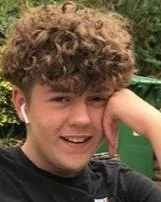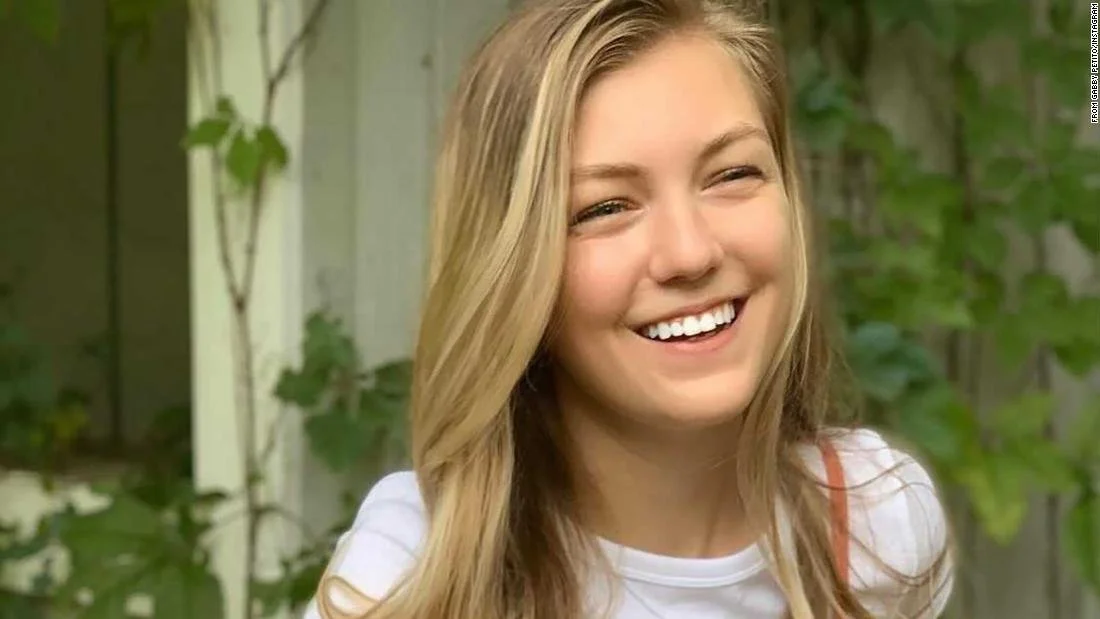The Menendez Brothers Case Over 30 Years Later
It was a day that changed American media forever. On August 20, 1989, police were called to the Beverly Hills mansion of the Menendez family. Previously owned by the famous likes of Elton John and Prince, Lyle Menendez, 22 at the time, had called 911 and reported someone had broken into their home and killed their parents. When police arrived, they found the body of Jose Menendez on the couch in the study, a shotgun blast directed to the side of his head. At his feet was his wife, Mary Louise “Kitty” Menendez, curled in the fetal position with shotgun blasts to the face and wounds to her knee.
Police discussed their parents’ death with Lyle and his younger brother, Erik (19). According to Oxygen, the two boys stated that they came across the bloody scene after coming home from a movie. Interestingly enough, they remarked that by the time they came upon the bodies, they still were able to see the gunshot smoke in the air, something that would have quickly dissipated after the shots were fired and were unlikely, they could have seen. Regardless of that fact, however, the brothers were not originally on the police’s radar, instead focusing on this case as possibly being a mob-related hit or in relation to Jose’s business dealings.
As time went on, however, more questions surrounding the brothers’ innocence began to rise. Very quickly after their parents’ deaths, they began spending copious amounts of their inherited wealth on jewelry, cars, and even a chicken wing restaurant. More suspicion rose from the younger brother, Erik, after two distinct moments. He not only wrote a script about a man who killed his parents to inherit $157 million, but he also confessed on tape to his psychologist to killing his parents with his brother’s help, a piece of evidence that was tossed around between being usable or unusable for some time.
The brothers were arrested on May 8, 1990, and that’s when the police began to investigate their actions leading up to that day and talk with the boys. It was then that they learned had bought shotguns two days before the murder with a classmate’s ID, and in the end, the brothers admitted to killing their parents. After the murder, they said according to History.com, they drove to the nearby Mulholland Drive to dispose of the guns and bought movie tickets, trying to create an alibi. But still, more twists were waiting to come in this tale, and it started back with the family.
Jose Menendez was a Cuban immigrant who escaped the communist regime there to create a better life for himself and his family in the United States. By pushing himself he was able to do just this, working to become the general manager of Hertz and later becoming an executive for a Hollywood film company. According to Oxygen, this drive to succeed extended past himself, and he impressed firm rules and expectations onto his sons. His actions towards his sons do not just stop with some high expectations, they go much darker and more despicable.
According to both Lyle and Eric, their father had physically and sexually abused them for years when they were children. Beginning when Lyle was just six years old, their father sexually assaulted and raped them, along with physically harming them with knives and violence. According to family and friends, Jose implemented strict rules in the house to hide his abuse, not allowing anyone to walk down the same hallway he was in if he was behind a closed door with his sons. He abused Lyle until he was eight years old before turning his attention to the younger Erik, and the entire time this abuse occurred both brothers believed their mother knew of the actions but did nothing to stop it.
The boys told this to the police and stated that it was because of this abuse and fear they were in danger that they killed their parents. According to Lyle, a couple of days before the shooting, he had confronted his father about the abuse and fully believed that his father would kill them to protect the family's secret and his reputation. The defense point to this as an example of the “imperfect self-defense” law, in that the boys experienced a true fear for their lives after the confrontation of abuse, even if this fear and belief they were in danger would be considered unreasonable.
As the trial played out in 1993, the prosecution and defense took their sides staunchly. The defense focused on the emotional aspects of the case, of the boys’ traumatic experiences and fear for their lives. The prosecution, on the other hand, worked to make the jury and nation question the validity of their sexual abuse claims by pointing at the other factors at play: the savage nature of the crime and the money they received and happily spent after their deaths.
This trial not only sensationalized the courtroom, but it took over the American cultural consciousness at the time. With press filling the courtroom and cameras recording everything, this trial defined the new cable genre of Court TV and would later be credited with being one of the ignitors of the modern true crime genre. The nation was split: are these boys cold-blooded killers, or traumatized victims?
The first juries tasked with each boys’ cases, as they were tried separately, seemed to also suffer from this split, ending up deadlocked. A couple of years after their first trial, they were both retried, with some distinctly different variables at play. The judge in their second trial removed all press and cameras from the courtroom, along with limiting the scope of their imperfect self-defense arguments. Most importantly, and possibly controversial, however, he restricted the extent to which the defense could focus on the sexual abuse they experienced, restricting their main argument. In the end, these juries ruled both men were guilty on all counts, sentencing them to life in prison.
Despite this case being over 30 years old, it continues to revolve in the public consciousness and has seen a revival in public fervor on TikTok. According to The New York Times, the younger generation has taken an extreme interest in this case, with numerous accounts and influencers tailoring their content to discussing the boys and fighting for their release. With the trial footage online to watch even these many years later, many of these users find the justice system and media downplay of their abuse to be disgusting.
They see that the years they have spent in prison already are long enough for their crime, that while the actions they took in killing their parents were entirely wrong, it is necessary to consider the environment and abuse they experienced and that shaped them to take these actions. This is on trend with the growth in recent years of looking for nuance in true crime, looking at the pasts and reasoning behind certain crimes, and creating discussions of truth and justice online.
To this day, the brothers assert that their actions were bred out of the fear and trauma they experienced at the hands of their parents. As people continue to be cross on this case, struggling with both sides at play, it is a question if a case like this were to happen today what the possible outcome would be? Who would we sympathize with? Who would we demonize? And how fast would it be picked up for a Netflix special?






